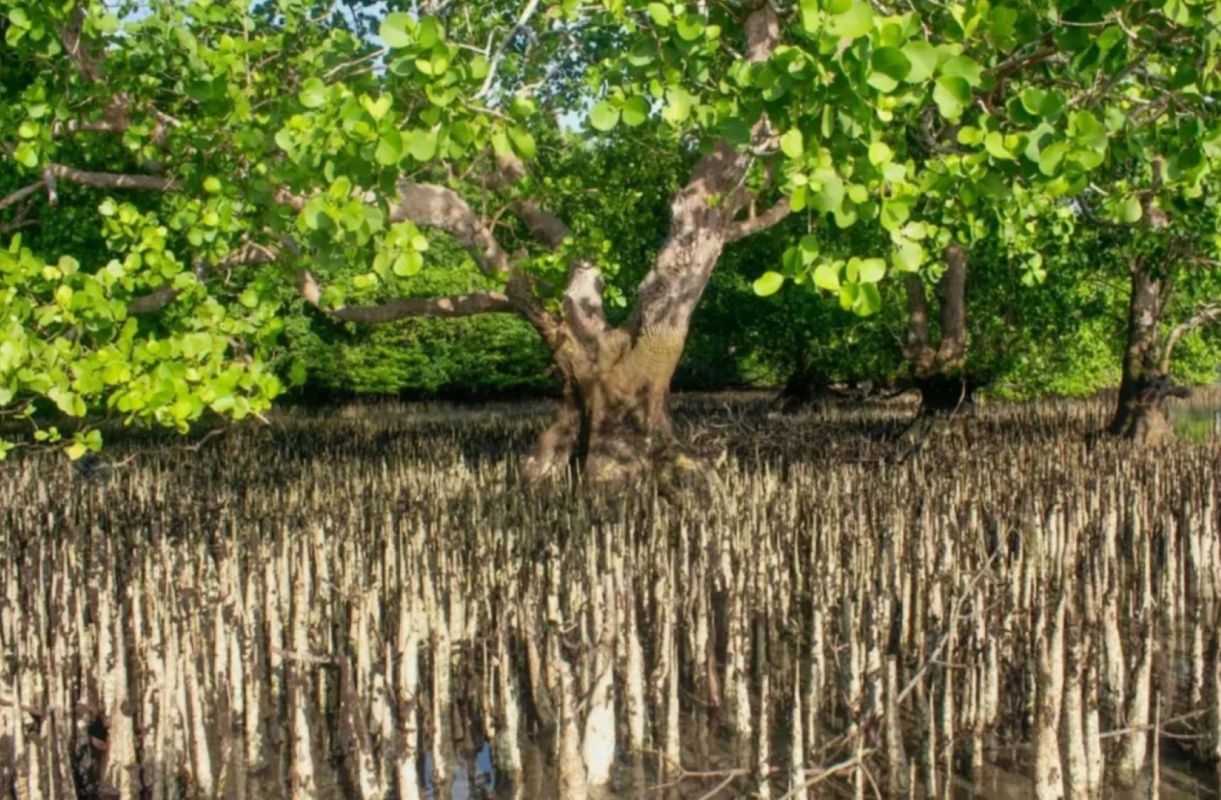Mangroves, a group of trees and shrubs that grow mainly in coastal saline or brackish water, help the environment in several ways: they prevent coastal erosion, provide a nursery habitat for fish and crustaceans, and store carbon.
Now, scientists have discovered that mangrove and salt marshes store twice the amount of carbon as previously thought, as detailed in a report by the University of Gothenburg posted by SciTechDaily.
Researchers from the university analyzed 45 mangrove swamps and 16 salt marshes around the world and found that they were capturing and neutralizing an incredible amount of planet-overheating carbon by converting it into bicarbonate, a harmless substance that can help to mitigate ocean acidification and is used by crustaceans to build shells, per the report.
"We have uncovered additional stored carbon in mangrove forests and salt marshes. Our new findings show that much of the carbon is exported to the ocean-bound as bicarbonate as the tide recedes and remains dissolved in the ocean for thousands of years. Bicarbonate stabilizes the pH and can reduce ocean acidification," said Gloria Reithmaier, a researcher in marine chemistry at the University of Gothenburg, per SciTechDaily. "This contribution has previously been overlooked."
The researchers' findings were published in the scientific journal Nature Communications.
Like a large portion of the plant and animal life on Earth, mangrove populations have suffered because of human activity, with many being removed to make way for coastal fishing and development. However, there have been recent efforts to protect and restore these crucial habitats.
Watch now: Solar-powered boats from the Honnold Foundation are making a difference in the Amazon
"Mangroves are magical forests where we discover nature's secrets. They straddle the connection between land and sea and nature and humans," Anne Birch, marine conservation manager at TNC Florida, told The Nature Conservancy.
With the new research displaying how adept mangroves are at capturing carbon, that seems to be more true than ever.
"Our results show that blue carbon ecosystems are more effective in mitigating climate change than previously thought. It is now even more important to protect and restore mangrove and salt marsh ecosystems," Reithmaier said.
Join our free newsletter for cool news and cool tips that make it easy to help yourself while helping the planet.









